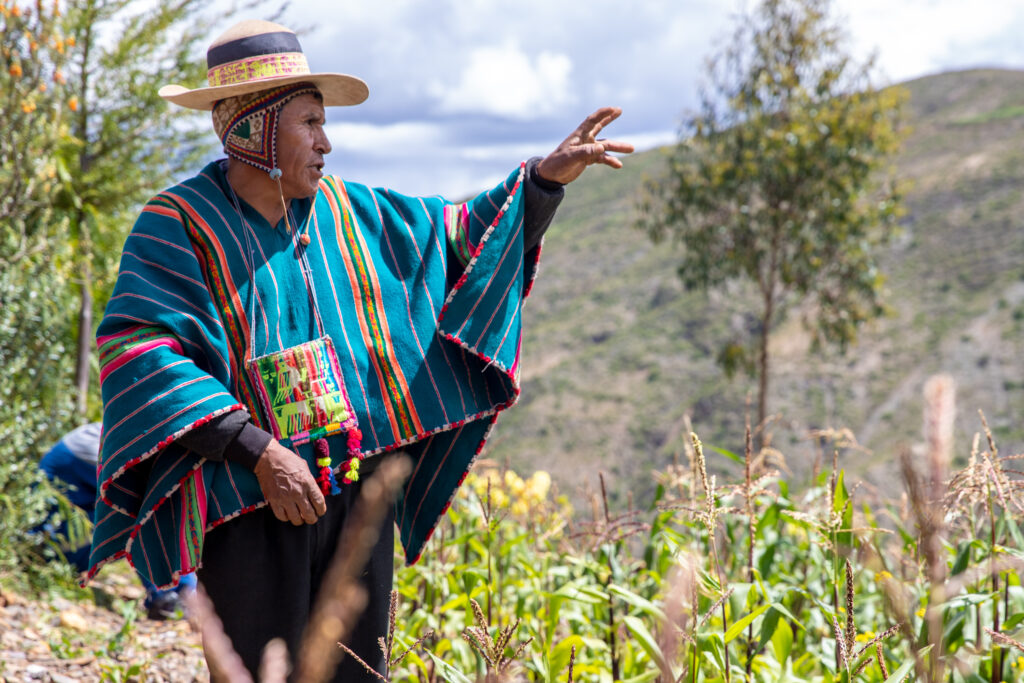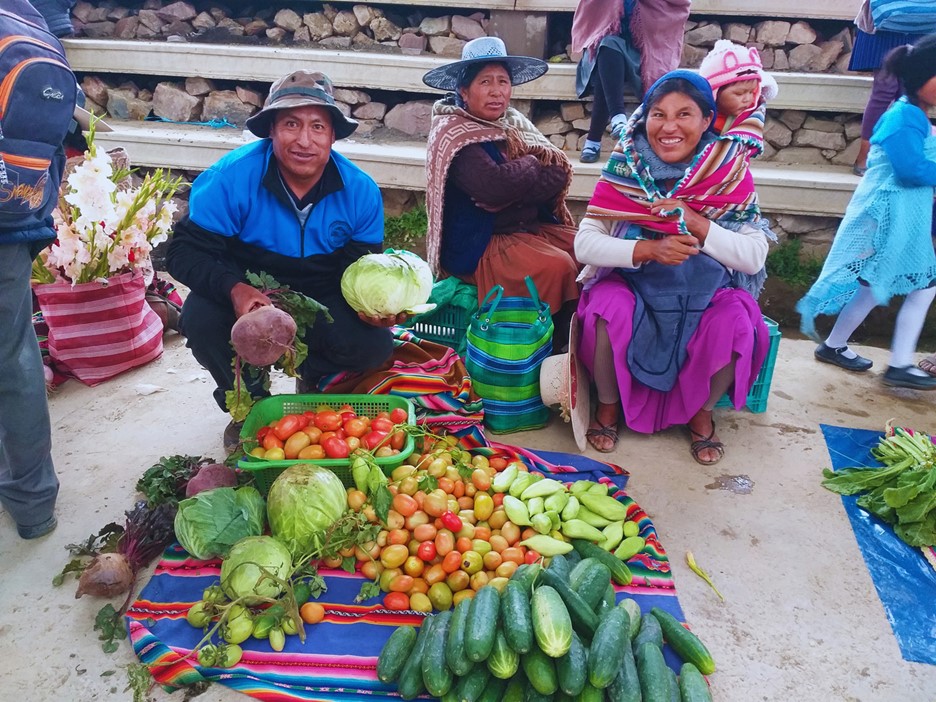 Bolivia North Potosí
Bolivia North Potosí
$60,000 needed of $120,000

Implementing Organization
Mennonite Central Committee (MCC)
Program Summary
This program works with indigenous farming families in the North Potosí region of Bolivia on sustainable agriculture practices responding to the impact of climate change in order to increase yield and overall food security for participating families. The main objective is to ensure that the families participating in the program are resilient to the effects of climate change and improve the availability, access, and use (nutritional quality) of food with agroecological plots. With improved agricultural production, families will have less need to send men and boys to mining regions and cities to look for work. This will allow an increase in commitment in the community, the family, and in agricultural activities in the region. The increase in the production of crops will generate additional income for families to cover other needs. Key activities include providing education and training for indigenous leaders to be promoters of the implementation of adaptation and mitigation actions for the effects of climate change. Activities also include providing technical assistance and training to producing families around water management techniques, water harvesting for irrigation, agroforestry plots for diversified production, improved use of natural resources (soil, water, seeds) to guarantee crop production and ensure that families have timely access to food, recovery and conservation of native seeds, improved access to seeds for farmers, and advocacy for the participation of municipal authorities in the implementation of the program.
Abel's Story - Bolivia North Potosí
Success Stories

Back to the Land and a Better Life
The COVID-19 pandemic found Eulogio and his family living and working in a city and caused them to have to return to the country, where he grew up. The move was initially a hardship, but turns out to have been a lucky break for them. Eulogio has participated in local partner PRODII’s agricultural training since 2020, and his farming operation has really taken off.
PRODII works in an area whose agriculture had suffered greatly due to the effects of climate change, scarcity of water resources, deteriorated traditional farming practices, and the degeneration of native seed quality. The government passed a law protecting “Mother Earth” and promoting the rights of vulnerable families to food and economic opportunities in order to live well.
In workshops, Eulogio learned about terracing to prevent erosion and take greater advantage of available land; Andean agroforestry to enrich the soil and diversify nutrition; making and using organic fertilizer; producing vegetable seeds; and planting techniques to help replenish groundwater.
He receives advice and monitoring from a technician who has helped him improve his farm operations and diversify his crops. He grows pumpkins, corn, potatoes and broad beans, though he focuses mainly on carrots, onions, parsley, chard and beets.
He built a greenhouse to grow vegetables that need more heat, such as tomatoes, spicy chili peppers, paprika, watermelon, and cucumbers. He says, “Not only does this greenhouse help us feed ourselves, it has the potential to generate much greater income for us.”
His biggest sellers at market currently are onions, pumpkins, tomatoes and achocha, or “Bolivian cucumber,” a small, green, spiky fruit that can be eaten raw when young or stuffed and cooked like a pepper when mature.
Eulogio’s dream is to produce more tomatoes, cucumbers and paprika in the greenhouse, earning enough to avoid ever having to return to the city to find work. He also hopes to build his own irrigation system, establish a 1,000-bee apiary to sell honey, and diversify his living in other ways.
Bolivia North Potosí Program
Led by Mennonite Central Committee and Local Partner Interdisciplinary Integral Development Program (PRODII)
